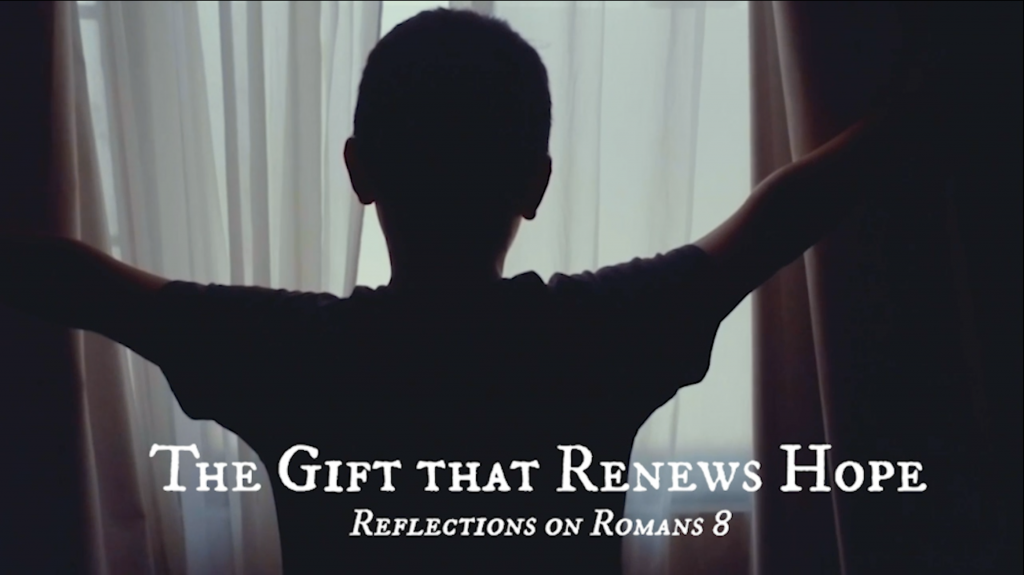Passage: Romans 8:18-30
Guide for Group Discussion or Personal Reflection
Sermon Summary
The gospel gives Christians the incredible hope that God will one day bring about a complete restoration and renewal of this earth. In Romans 8:18-30, Paul describes the goal of this hope, the groaning this hope produces, and the ultimate ground of this hope.
The ultimate goal of our hope is that the whole creation will be liberated from the effects of sin (“set free from its bondage to corruption”) so that it can reach its full potential and flourishing. This goal is contingent upon humans themselves being set free from their sin, in order to return to their original calling of cultivating the earth for God’s glory. All of creation “waits with eager longing” (8:19), therefore, for humans to get back “on the job”—a truth that we should think deeply about, as Christians, and realize its implications for all of life.
Having this future hope produces a sense of groaning in the present, however. The creation “groans in the pains of childbirth” (8:22) as it waits for God’s restoration to be come into being. We ourselves groan as well (8:23), because as we roll up our sleeves and let God use us in his restoration project, we encounter sin, suffering, and setbacks at every turn.
Nevertheless, we are called to press on and invest in this world with a sense of hopeful patience (8:25) because we know that the ground of our hope is certain. This certainty is based on the fact that God has promised to see this whole project through from start to finish, for “those whom God predestined, he also called, and those whom he called he also justified, and those whom he justified, he also glorified” (8:30). We can take heart, then, in the certainty that God will use “the sufferings of this present time,” painful as they are, in service of his unshakeable final purpose.
Sermon Outline
- The Goal of Our Hope (8:18-21)
- The Groan of Our Hope (8:22-27)
- The Ground of Our Hope (8:28-30)
Group Discussion & Personal Reflection Guide
Re-read the passage (Romans 8:18-30)
The Goal of Our Hope (8:18-21)
Q) Pastor Bobby shared several truths in his sermon that have the potential to stretch some of our preconceived notions about the destiny of this physical earth. If you grew up in the church, what were some of the messages you received—explicitly or implicitly—about the future of this physical earth…i.e. what will happen to it “in the end”?
Q) Re-read Romans 8:18-21. What does it mean that the “creation was subjected to futility,” or that the creation is “in bondage to corruption”? What truths is the imagery of “bondage” and “corruption” (vs. 21) meant to communicate?
Q) What are some present-day evidences of creation being “subjected to futility?” Where have you personally experienced this?
Q) What is one aspect of this earth that you long to see God restore? What do you think it would look like for God to bring his restoration in this area?
Q) Pastor Bobby quoted a biblical scholar (Richard Middleton) early in the service, who explained: “Humans are not only made from the ground, but also they are made for the ground, with a specific task or vocation in mind. We have the royal task of exercising power to transform the earthly environment.” How would you explain this truth in your own words? How is your job today, or your current role in life, an opportunity to “transform your earthly environment” for good?
The Groan of Our Hope (8:22-27)
Q) Re-read Romans 8:22-23. Pastor Bobby said that the more we invest in this world, the more we “groan” with the realization that “things are not yet the way they’re supposed to be.” Where have you personally been “groaning” over the sin and brokenness of our world?
Q) The Apostle Paul compares the groaning of creation to “the pains of childbirth” in verse 23. What might the image/metaphor of “birth pains” communicate about:
- The intensity of the pains?
- The duration of the pains?
- The end result of the pains?
Q) Read John 16:20-22. How does Jesus use the imagery of “birth pains” here, and what is he meaning to communicate?
Q) How can the realization that the pains of living in a fallen world are actually “labor pains” give us hope and perspective?
Q) What is one practical step you can take this winter to move closer to the pains (“groanings”) of this world, rather than insulate yourself from them?
Q) Re-read Romans 8:24-27. How does the Holy Spirit help us in our weakness? How does this truth comfort you?
The Ground of Our Hope (8:28-30)
Q) Re-read Romans 8:28-30. What do these verses communicate about the certainty of our hope?
Q) Where is one area of your life where you’ve struggled to believe that “God works all things together for good”? How might these verses give you greater confidence?
Additional Application Questions
Q) How else would you like to engage with God this week?
Q) How can you tangibly care for those in your community this week, both inside and outside of the church?
Prayer
Spend time praying for yourselves, our church community, the North Shore community, and our nation and world—particularly those most vulnerable.

